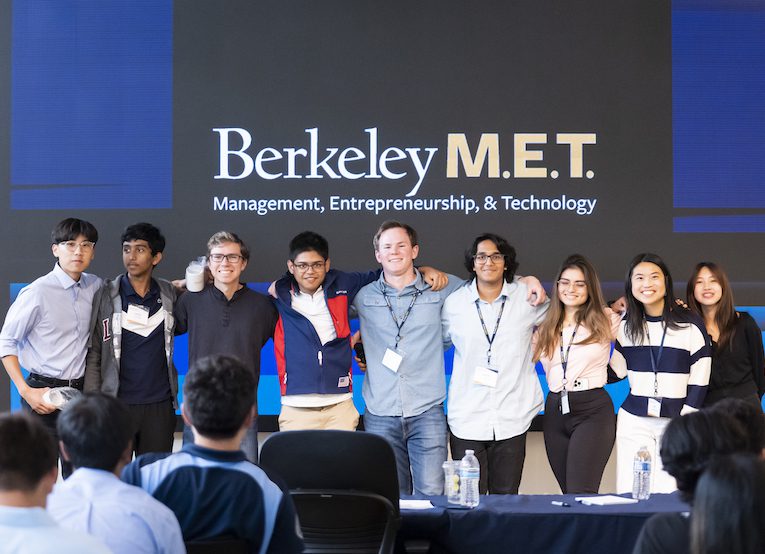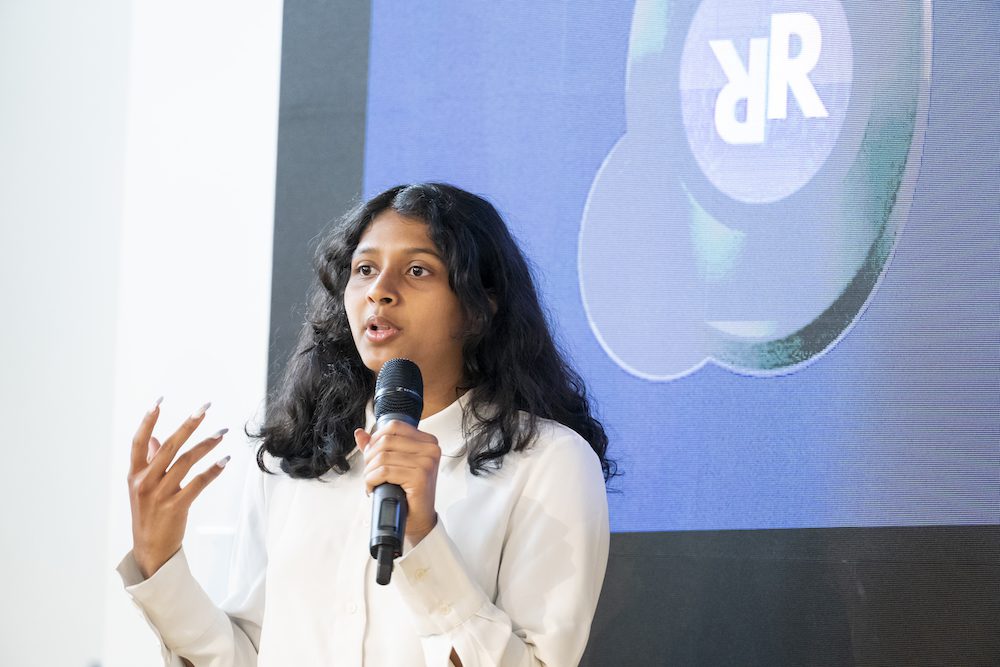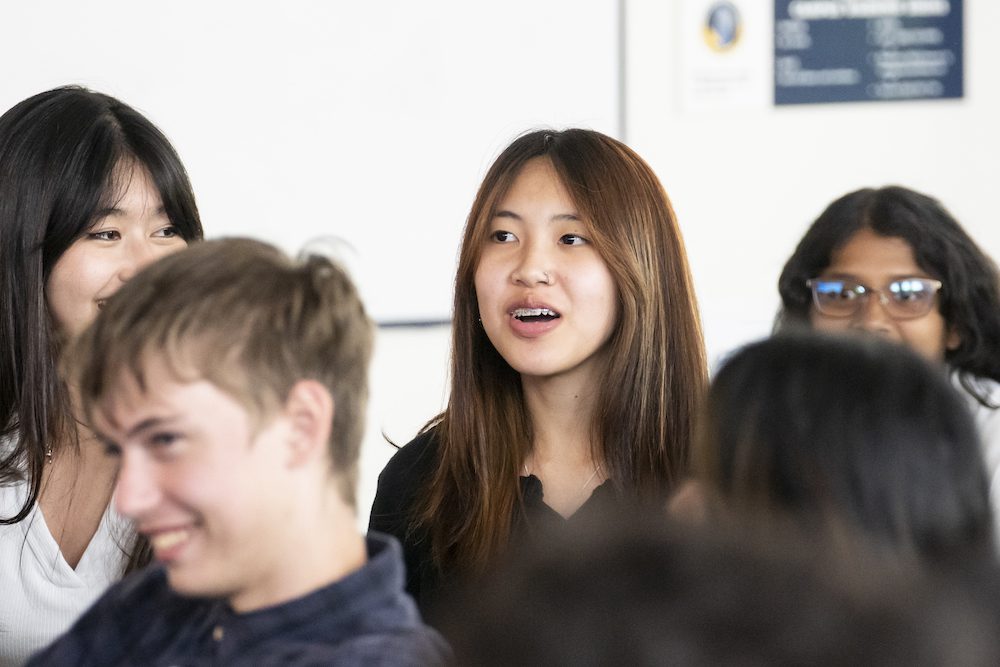
The UC Berkeley M.E.T. (Management Entrepreneurship and Technology) Program this summer launched a pre-collegiate program that brings high school students to campus to explore how engineering and business intersect.
Fifty rising juniors and seniors in the new M.E.T. Innovation Academy (M.E.T.ia) took residence on the Berkeley campus for two weeks in July for the program, which is designed to provide real-world experience in solving business and technology challenges.
The program is designed to provide real-world experience in solving business and technology challenges.
Students visited world-renowned corporations and organizations, interacted with successful entrepreneurs from the heart of Silicon Valley, and met Berkeley M.E.T. student entrepreneurs. M.E.T. is a dual degree program launched in 2017 by the Haas School of Business and the College of Engineering at UC Berkeley. The program, designed for students with a strong aptitude for math and science, was held July 17-28.
“As a school we are mission-driven to change society for the better—and the Innovation Academy gives us a chance to expose a diverse group of students to new ideas that could potentially change the world,” said Saikat Chaudhuri, faculty director of the undergraduate M.E.T. program.

The group participated in interactive workshops focused on topics such as how to think like an entrepreneur; self-driving and energy-saving cars; developing business plans and resumes; accessing venture capital, and launching startups.
The students also headed off campus for visits to Berkeley-based Ambi Robotics, an AI-powered robotics company with UC Berkeley roots, and to San Francisco-based audiovisual company Dolby.
The program wrapped up with a Shark Tank-style pitch session, with student teams presenting their capstone projects to a panel of judges. Judges included serial entrepreneur Nilesh Bhandari; Sibyl Chen, general manager at UC Berkeley SkyDeck; and Darren Cooke, executive director of the UC Berkeley Life Sciences Entrepreneurship Center.
Sahil Puranik, a rising high school senior from Fremont, California, pitched an idea to turn food waste into energy. Pitching during the program helped boost his confidence in presenting and collaborating, he said. “Before, I never really had the confidence to talk to people I didn’t know,” he said. “But after this program, I found it a lot easier to just reach out to people who have shared interests.”

“Not only has this program shown me the importance of learning from others, but also about passing down what I have learned from my experiences—skills and lessons that I hope to teach to others,” student Jay Ananth added.
Another program highlight was an IPO simulation led by Michael Grimes, BS 87, EECS, the head of Global Technology Investment Banking at Morgan Stanley and the M.E.T. program’s founder. The session taught students about how an IPO works in the real world. “It was fascinating to see the different forces manipulate the price, but all within a set of rules,” M.E.T.ia student Kaelen Cazzell said.
Due to strong interest in the program, next year’s M.E.T. class size will increase to 70. Chaudhuri said he looks forward to what the students will accomplish.
“There are so many existential challenges right now,” Chaudhuri said. “There’s climate change, geopolitical tensions, transportation that needs to be disrupted, and healthcare that isn’t covering everybody. I think there are incredible opportunities for students to affect change.”